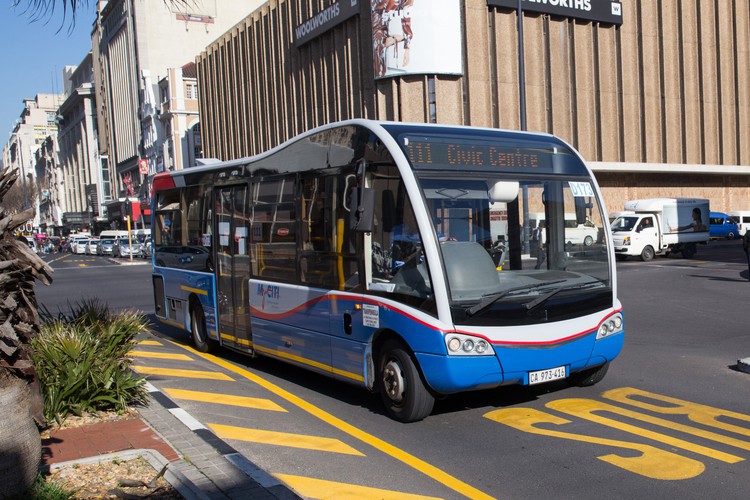MyCiTi suspension on N2 hits commuters hard
Khayelitsha commuters are battling with transport costs
Commuters in Khayelitsha are battling to get to work as the suspension of the MyCiTi service on the N2 enters its 10th week.
Those who can afford it are clubbing together to use e-hailing services, spending up to R250 for the trip to the city. Some say they need to bring laptops, cameras and other equipment to work in the city centre and minibus taxis are not safe from thieves.
Copywriter and freelance events photographer Mawande Sobetwa, lives in Litha Park, Khayelitsha. He says the MyCiTi bus N2 express system was reliable, dependable and on time. He says since the suspension of the service his transport costs have doubled.
“This month alone, by the 12th I have already spent over R1,000 on transport.” He says he spends R150 to R200 on e-hailing services on the way to town and splits the amount with other commuters on the way back home.
Minibus taxis would charge R50 return, he says, but are more risky.
Sobetwa says the buses “did a great job” supplementing taxi services.
“There are not a lot of taxis to transport loads of people during rush hour,” he says, and taxi drivers have reason to drive fast. “We passengers want to get to work quickly because we have been stuck at the taxi rank for one hour and a half and want to reach work on time.”
“Metrorail trains are a total mess at the moment.”
But in the darkness of winter mornings, taxi users are vulnerable to thieves, says Sobetwa.
“The absence of the MyCiTi bus N2 express has created chaos on the N2. A taxi driver who used to make six trips a day now has to make 12.”
Loyiso Mfunda, lives in Phakamisa, Khayelitsha and works in Sea Point. He used to take a taxi from Khayelitsha to Cape Town centre and then another to Sea Point. He would leave his home at 7:30am and made it to work on time by 9:30am.
Then he started using MyCiTi.
But with the disruption of the N2 Express, and the dysfunctional Metrorail system, he has started using taxis to get to town again, leaving home as early as 5:30am to get to work on time, he says.
“We have to spend two to three hours in traffic on a bad day.”
To get back home after work he tried using Uber and Taxify e-hailing services but found these too expensive. Now he uses InDriver.
“We split the fare. We are three people on average. We contribute R50 each to make up the total fare. Financially it is crazy. It is unsustainable. With a normal minibus taxi on average I would spend R1,200 a month. With MyCiTi I spent on average R800. Now, mid month, I have already spent close to R2,000 on transport,” says Mfunda.
Pamela Mzomba lives in Harare, Khayelitsha, and works as a cleaner in the Cape Town city centre. She also used the N2 express service. Now, she says, she cannot afford e-hailing services and has to use minibus taxis. She gets up at 4am to allow time to queue at the rank for an hour and board a taxi which might then get stuck in traffic for two hours before getting to Cape Town.
She says she has blown her transport budget, forcing her to borrow from neighbours and from moneylenders. And in spite of her best efforts, she often gets to work late.
Support independent journalism
Donate using Payfast

Don't miss out on the latest news
We respect your privacy, and promise we won't spam you.
Next: Cape Town municipality knew Site B could be sold for more but chose to sell quickly instead
Previous: A lifetime without an ID document
Letters
Dear Editor
Khayelitsha Transit welcomes the launch of the BRT-MyCiti Bus Transit which was addressing transport disadvantaged and social exclusions for commuters from low-socioeconomic areas. The withdrawal of the service rendered those transit in transport social exclusions and limit their mode choice.
The question now is whether transit captives will ever realise sustainable transport and improved urban mobility. Whether the paratransit is biting the very hand that feeds them by withdrawing mobility services whenever there is a dispute with government. Poor transit captives who are black and mostly women are threatened with this arrogance and sheer disregard for their livelihoods and employment security. Maybe an alternative should be explored for transit captives as the demand is indeed there but the supply is conditional.
© 2019 GroundUp.
This article is licensed under a Creative Commons Attribution-NoDerivatives 4.0 International License.
You may republish this article, so long as you credit the authors and GroundUp, and do not change the text. Please include a link back to the original article.

